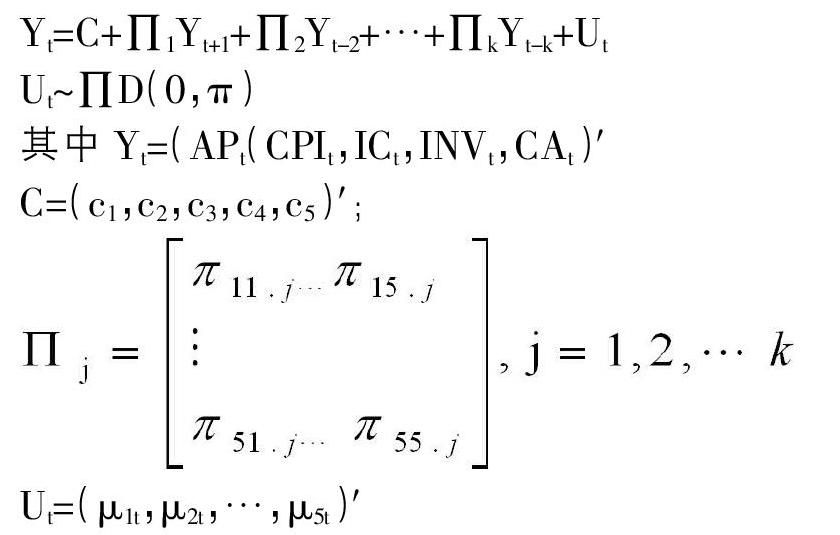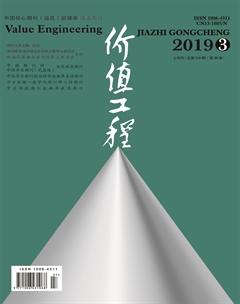商品房價格影響因素的綜合分析
肖文



摘要:針對商品房價格的影響因素,以合肥市房價為研究對象,根據價格理論,構造了商品房均衡價格模型,并從供需兩側選取了INV、CPI、LC、以及CA四個變量進行實證分析。首先,運用1997年-2016年合肥市各變量年度數據,通過Spearman相關系數檢驗,得出所選取的變量與商品房平均銷售價格之間均具有較強的相關關系。其次,利用合肥市2013年4月-2017年11月部分變量的月度數據,建立向量自回歸模型,利用脈沖響應分析和方差分解來進一步分析合肥市CPI、INV、CA以及LC幾個變量對合肥市商品房平均銷售價格的影響,最終得出除了房價自身以外,INV與CPI對房價的波動都做出了貢獻,而LC與CA的貢獻度很小。最后,根據實證分析的結果提出相關政策建議。
Abstract: According to the factors affecting the price of commodity house, the house price of Hefei City is taken as the research object. According to the price theory, the equilibrium price model of commodity house is constructed. The four variables of INV, CPI, LC and CA are selected from both sides of supply and demand for empirical analysis. Firstly, using the annual data of various variables in Hefei from 1997 to 2016, through the Spearman correlation coefficient test, it is concluded that there is a strong correlation between the selected variables and the average selling price of commodity house. Secondly, using the monthly data of partial variables from April 2013 to November 2017 in Hefei City, a vector autoregressive model was established, and the pulse response analysis and variance decomposition were used to further analyze the CPI, INV, CA and LC variables of Hefei City. The impact of the average selling price of commercial housing in the city finally concluded that INV and CPI contributed to the fluctuation of housing prices in addition to the housing price itself, while the contribution of LC and CA was small. Finally, based on the results of the empirical analysis, the relevant policy recommendations are proposed.
關鍵詞: 商品房價格影響因素;Spearman相關系數;VAR模型;脈沖響應分析;方差分解
Key words: factors influencing commodity house price;Spearman correlation coefficient;VAR model;pulse response analysis;variance decomposition
中圖分類號:F293.35 ? ? ? ? ? ? ? ? ? ? ? ? ? ? ? ? ? 文獻標識碼:A ? ? ? ? ? ? ? ? ? ? ? ? ? ? ? ? ?文章編號:1006-4311(2019)07-0033-04
0 ?引言
眾所周知,在世界大部分國家和地區,房地產行業都占有舉足輕重的地位,是各國國民經濟的支柱產業,可以說,房地產行業的興衰直接關乎著國民經濟是否能夠穩定運行。我國的房地產行業也不例外,每年房地產行業都能為我國GDP做出穩定貢獻,不僅如此,房地產行業的特殊性使得其間接帶動了其他相關領域的發展,可以說,房地產行業已經正式成為我國國民經濟的支柱產業。但是,隨著房地產行業的飛速發展,也引發了一系列的問題。其中,最主要的就是過度投資以及房價居高不下。為了抑制房價過高增長,我國政府多次進行了宏觀調控,出臺了一系列政策,確實也在一定程度上穩定了房價,但由于中國是個人口大國,而且低收入群體占比很大,現前的房價對大部分老百姓而言依舊是個可望不可即的數字。尤其是在一些大中型城市,房價上漲速度愈發加快,根據有關資料顯示,在1997年合肥市的商品房平均銷售價格還只有987(元/平方米),然而,到了2016年,這一數字已經變成了9369(元/平方米),漲幅接近10倍之多。2016年3月份合肥市的新房環比漲幅達到4.6%,在全國名列第二,僅次于廈門,二手房環比漲幅高達 9.3%,成為全國領跑者。合肥與廈門、南京、蘇州并稱為“四小龍”,受到前所未有的關注度,可以說已成為房地產中的“網紅”代表。尤其在近兩年,合肥市房價甚至出現了“爆炸式”上漲,部分地區房價達到了驚人的20000(元/平方米),高房價給大批年輕人尤其是外來人口帶來了巨大的生活壓力。為此,合肥市政府也出臺了一系列政策措施來印制房價的飛速上漲,如限購政策、限貸政策、最新落戶政策以及調整銀行貸款利率等。房價背后的影響因素錯綜復雜,本文主要對相關影響因素進行實證分析,為政府以及居民消費者提供一些參考性意見。

